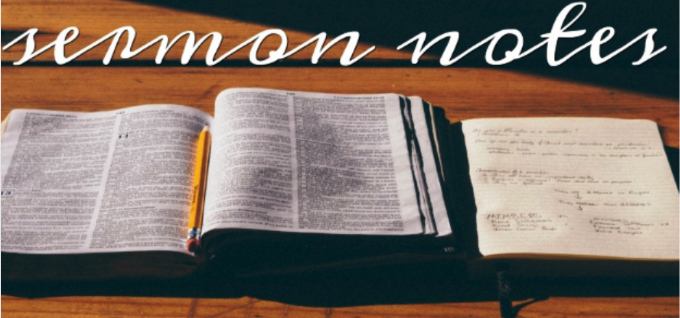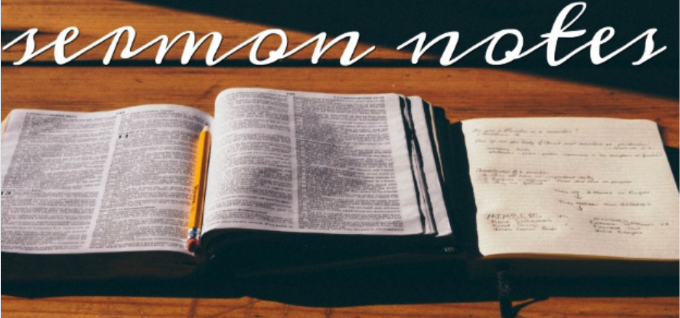
mindfulchristianitytoday.com

416 N 2nd St, Albemarle NC 28001 | (704) 982-2910

mindfulchristianitytoday.com

This week there is a Holy Day of Obligation. We will be observing the Feast Day for the Solemnity of the Immaculate Conception on Friday at 8:30 a.m. There will be a Vigil Mass on Thursday at 6:30 p.m. Also, Christmas falls on a Monday this year which means the faithful are obligated to participate in the Mass once for the Sunday and once on the holy day. Believe it or not, I have already heard the Catholic angst. “Oh, my goodness! I have to go to two Masses in three days!” Really? Are you starting your own opera here? That’s a lot of drama over nothing. If you don’t like the Mass, you won’t like Heaven. The same Lord appears in both places. You’ll be fine. In fact, you’ll be better than fine; you’ll be fantastic. So, please come.
Just like Lent, Advent is a season for penance. Because it is a penitential season, I’m wearing violet – not purple – violet. Because this is a season of penance, we will not be saying the Gloria during the Mass. Advent is a time for reflection and preparing our souls for the coming of our Lord in the flesh. When He comes again it will be to take us to Heaven.
On Friday I was visiting a man in hospice. I asked him how he was doing, and he said, “ho hum.” At least he didn’t say “fine.” I hate it when they do that. So, we were talking, and I asked him how old he was. I found out that he had been in the Army, and I asked if he had been in Vietnam. He said, “No. My brother took an extra tour there so I wouldn’t have to go.” We kept talking, and I asked him if he was ready for what may happen. When I’m talking to hospice patients, I never use the “D” word. If they want to talk about it, they will bring it up. But I don’t take away that crutch from people until they are ready. Some patients have stabilized, gone home, and lived a lot longer. You don’t know where people are on that spectrum. Some people never reach the acceptance stage and need that crutch. So, I asked him, “Are you ready for whatever might come?” He said, “Yeah.” I said “Okay,” and we talked a bit more.
In one of his letters, Saint Paul said, “I don’t know if I wish to stay in the body or be at home with Christ” (Philippians 1:21-22). He wasn’t sure if he should stay in his body to continue the work of the Church or go be with Christ. Paul was torn but he was ready for anything. During this penitential season, perhaps that can be a good meditation for us all, as in my question to that sick man: “Are you ready for what may happen?” Or as in Saint Paul’s statement: I do not know whether it would be better to stay in my body to build up the Church on Earth or go to Heaven. Are we ready for whatever may come?
How will you apply this message to your life? ________________________________________
You can read all of Father Fitzgibbons’ sermons by going to annunciationcatholicalbemarle.com and clicking on “Blog” then “Categories” then “Sermon Notes.” On a cell phone: click on “Blog” and then “Menu.” Scroll to the bottom and click on “Categories.” Sermon Notes are also available on the Church’s Facebook page at ola.catholic.church. Click on “Groups” and then “Sermon Notes.”

“Did I Say I Hate Fish?”
Father Peter Fitzgibbons
February 18 – 19, 2023
On Wednesday, we begin the season of Lent. Ash Wednesday is not a holy day of obligation. It’s a “good to do” and not a “must do.” Ashes will be given only at 8:30 am and 6:30 pm. There will be no “drive-thru” ashes or “ashes to go” given. Also, you cannot drive into the parking lot, beep the horn, and expect to receive ashes. There are some places that actually do that. It’s a Sacramental just like Holy Water and not mandatory. We’d love for you to come to Mass to begin the season of Lent. On Ash Wednesday and Good Friday there is a “black fast” for those younger than 59 (I’m 69) which means you cannot eat between meals, and you can have only one full meal for the day considering your medical circumstances of course. Nobody can eat meat on Ash Wednesday and on Holy Fridays during Lent. You don’t have to eat fish although I do. Did I tell you I that I hate fish? On Fridays, we will have Lenten dinners which will be followed by Stations of the Cross.
Lent is a season of penance, and we are supposed to do works of penance or self-punishment to atone for our sins and the sins of others. The season of Lent is not a “self-help” season. “Oh, I resolve to eat better.” You are supposed to eat well. It falls under the Fifth Commandment, so it is not a penance. You are doing your body a favor. We are supposed to do something that disciplines the will, restrains our pride, and rids ourselves of the obsession of self so that we can love better. There must be a sacrifice. For me, that would be eating fish because I hate fish! Get the theme here? I hate fish! There has to be some kind of degradation. When we sin, we tell God, “No. I’m not going to do that. No! No! No!” So, we step away from God. When we do penance, we are taking a step back toward God. Some of us may be over-achievers, like those of us who were at Fort Bragg, and have taken multiple steps away from God. Come see me. If you say, “I’m going to spend extra time in prayer.” Extra prayers take time away from our other activities. And so we begin that walk back towards God.
Now, you don’t have to say, “I’m going to give up a kidney.” The penance doesn’t have to be huge. What’s important is how much love you give it with. It’s not the size of the gift but the love with which it is given. Doing a little bit of penance with great love is very effective. What are we doing when we do penance? We are decreasing our love and fascination with ourselves, even as wonderful as I think I am, and increasing our love for God. When we love ourselves – and I especially love me – it’s hard to love others. We need to decrease self-love so that we can increase our love of God. We must love God first and then we will be able to love others. We cannot give what we do not have. Saint John the Baptist said, “He must increase, and I must decrease.” That’s exactly how we grow in the love of God. It’s awfully difficult sometimes. When I drive past a Hardee’s, I just tear up because there’s just something about the smell of bacon. Last night I had a small discomfort, but for me every discomfort is HUGE because it’s me. If you buy your lunch at work, don’t. Deprive yourself of a small meal and give that money to the poor.
This season of penance is the perfect time for us to make a good Confession. According to Church law, we are supposed to confess once a year. It’s also a good time to reach out to others who may have fallen by the wayside and bring them back to the Sacraments and to the Church to rejoin in God’s love. How do you call someone back to the Church? I’ll give you a story. This week I was doing my rounds in the Emergency Department at the VA hospital. I’m just there for the scare. When I walk by someone who is on an EKG, the machine goes crazy. Nervous? Anyway, I saw two veterans, and one of the guys was very talkative. He was coming off drugs, and he wanted to get clean. So, I talked to him for a long time. The other guy was coming off booze, but he didn’t want much to do with me. The next couple of days are not going to be pleasant at all for them. As I was talking to the nurses, I learned that the guy who was coming off the sauce has a behavioral problem. I said, “Well, he’ll get that fixed here.” The ER nurses at the VA could top any WWE steel cage match. Don’t mess with them. They don’t wear a camera; however, whatever they break the doctors can fix. So don’t worry about that.
Anyway, I was talking to the one guy, and he was upset and ashamed. One of the phrases we use in the military, not those phrases, but a good one that we use is, “We don’t shoot our wounded.” You are sick and we will take care of you until you are not. That’s exactly what we tell sinners. We don’t shoot our wounded here. The Church wants to reclaim people for Christ and keep them close to the Cross. The guy was upset so I said to him, “Here is my card. If you need someone to talk to, give me a call. A lot of counselors have not been where we’ve been.” When counselors are working with someone who has PTSD, they’ll say, “Oh, I know it must have been hard over there.” They don’t have a freaking clue because they weren’t there. But if a counselor has been there, the veterans will talk to them.
In the ten years I’ve been handing out my cards, nobody has ever called me. I’m not upset, but it’s important for me to do that. It gives people something to hang on to and to give them hope that somebody cares. We can tell people how great God has been to us and that we do not shoot our wounded although the Catholic Church tends to shoot theirs. But we will take care of you until you no longer need us. That’s what we tell people especially those who have fallen away from God because they feel guilty. Some of the guilt they feel is expressed as anger. “I don’t need this!” Then why are you so angry?
It is important for all of us to go out and search for stray and lost sheep. What are the signs of sin? Guilt, shame, fear, and remorse. The one that keeps people away is fear. Tell them that we don’t shoot our wounded. The sad part about the two veterans I met in the ER that day is that I don’t know if either of them will get clean or sober. Because they feel better for a few days, a lot of people check themselves out against medical advice and try the drugs or booze again. That’s why we must stay close and remember our frailties. As Saint Therese of Lisieux said, “When I am small, I am safe.” Instead, we think, “I’m the smartest bear in Jellystone Park. I can do this all by myself. I’m good.” However, our Lord said to be perfect. Good is not good enough.
Lent is a wonderful time for us to help ourselves to love even more. When we love more, we will be happier. Remember the apostles who had the you-know-what beat out of them in prison? They left prison and rejoiced for they were found worthy to suffer for the name. So, when we give up these small things in our lives, we should be happier. I still hate fish. . .did I tell you that? But I’m happy because I eat it for Christ and the love of others. As Saint Paul says, “Now I rejoice in my sufferings for Your sake, and in my flesh, I complete what is lacking in Christ’s afflictions for the sake of His body, that is, the church” (Colossians 1:24).
How will you apply this message to your life? _________________________________________
You can read all of Father Fitzgibbons’ sermons by going to annunciationcatholicalbemarle.com and clicking on “Blog” then “Categories” then “Sermon Notes.” On a cell phone: click on “Blog” then “Menu” and then “Categories.” Sermon Notes are also available on the church Facebook page at facebook.com/ola.catholic.church. Click on “Groups” and then “Sermon Notes.”
What does the Israelites’ forty years in the desert tell us about the purpose of Lent?
Sure, they both involve the number forty—which often represents a time of test and trial in the Bible—but what’s the more important connection?
The Israelites’ time in the desert and our forty-day Lenten fast represent God’s invitation for us to trust him completely.
Fr. Mike explains, the Israelites did not believe the Lord could bring them into the Promised Land because it was inhabited by a people much more powerful and larger than Israel—they didn’t trust him even after he delivered them from slavery to the largest civilization on the planet, Egypt.
We can be the same way.
We think God can’t give us the strength to overcome this or that sin or habit. But purpose of Lent is to set aside time for us to trust God completely so we can see that he is all we need.
//Ascension//

“The same God who called Abraham and made him come down from his land without knowing where he should go is the same God who goes to the Cross in order to fulfill the promise that he made. He is the same God who in the fullness of time will make that promise a reality for all of us. What joins that first instance to this last moment is the thread of hope. Therefore, what joins my Christian life to our Christian life, from one moment to another, in order to always go forward— sinners, but forward—is hope. Yet, what gives us peace in the dark moments, in life’s darkest moments, is always hope. Hope does not disappoint: it is always there, silent, humble, but strong.”—Pope Francis
These powerful words from Pope Francis remind us that hope is one of three “theological virtues,” along with faith and love. With St. Paul, we believe that the greatest of these is love, but hope is the virtue that keeps us going when even love seems to fail. Sometimes our ordinary use of the word hope can reduce it to something like wishful thinking: I hope I pass this exam. I hope my test results are good. I hope my children will be happy and successful. We use the word for things that are out of our control. We use it for times when perhaps our efforts have fallen short. We use it for all the uncertainties in our daily lives. Pope Francis reminds us that the real source of our hope is always in God’s faithfulness and mercy. Abraham has always been the prime example of this kind of hope. He left everything to follow God’s call. We all have times in our lives when we, too, find ourselves going forth into the unknown darkness. In those times, hope in God’s promise is all we have to cling to—and cling we must, sometimes with only our fingertips. The image of hope keeping us from drowning can seem all too real at times when we are overwhelmed by life’s struggles: addiction, despair, depression, death. The theme of our Lenten reflections is hope. The hope of Lent is clearly Easter and the resurrection. But there’s a deeper hope that is with us each and every day, that knows no times or seasons. It’s the ground on which we stand, the bedrock of our foundation. That thread of hope runs strong and resilient through our lives, caught at each end by the grace of God’s merciful love.
— from the book The Hope of Lent: Daily Reflections from Pope Francis
by Diane M. Houdek
//Franciscan Media//


The 5th Sunday of Lent is historically known as “Passion Sunday” which ushers in the final two weeks of Lent, called “Passiontide.” Passiontide is characterized by a heightened celebration of Lent as Easter approaches, reaching its peak during Holy Week. During this period the faithful redouble their Lenten penances. It is also customary on this day to shroud all the sacred images in the churches with purple cloths, except the Stations of the Cross.
On Good Friday the crucifixes are unveiled, while the other sacred images are unveiled on the afternoon of Holy Saturday in preparation for the Easter Vigil. This imagery calls to mind how Christ hid his Divinity during his Passion and death, no longer performing miracles until his Resurrection from the dead. Likewise, the holy images are veiled in imitation of their Lord, their glory being unveiled with the joy of the celebration of Easter.
//The Catholic Company//
//Ascenion Press//

“The fast of Lent has no advantage to us unless it brings about our spiritual renewal. It is necessary while fasting to change our whole life and practice virtue. Turning away from all wickedness means keeping our tongue in check, restraining our anger, avoiding all gossip, lying and swearing. To abstain from these things—herein lies the true value of the fast.” — St. John Chrysostom

Bishop Barron has recorded and released his reflections on the Stations of the Cross, an ancient Christian devotion that draws us into the spiritual space of Jesus’ suffering and death.
These beautiful and powerful video reflections are the perfect resource for this penitential season of Lent.